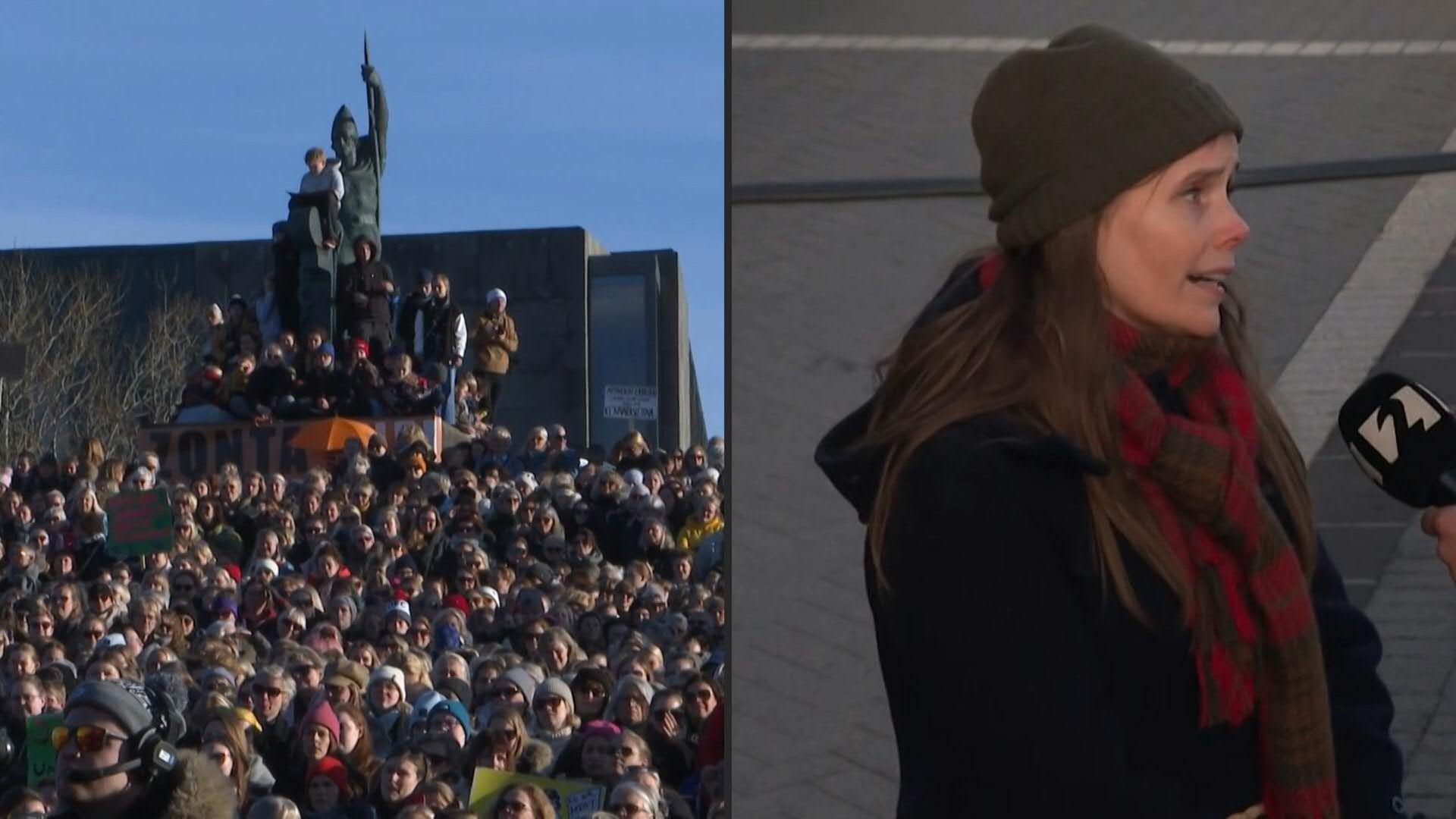
Thousands of women in Iceland, including the Nordic country’s Prime Minister Katrin Jakobsdottir, attend a rally in the capital Reykjavik to demand equal pay and protest violence against women. Iceland already tops a World Economic Forum (WEF) ranking for gender equality, but organisers of “Kvennafri” (Women’s Day Off) say the country needs to make even more progress and lead by example. | PHOTO: AFP
REYKJAVIK — Tens of thousands of women in Iceland, including the prime minister, walked off the job on Tuesday to demand equal pay and protest violence against women.
Organizers of the movement said this meant men were expected to take charge of the unpaid work that often falls to women.
“For this one day, we expect husbands, fathers, brothers, and uncles to take on the responsibilities related to family and home, for example: preparing breakfast and lunch boxes, remembering birthdays of relatives, buying a present for your mother-in-law, making a dentist appointment for your child,” said Lina Petra Thorarinsdottir, 45.
“We always have to be on guard when it comes to our rights.”
Prime Minister Katrin Jakobsdottir was among those striking, her office told Agence France-Presse (AFP).
“She will not attend to official duties and in that regard today’s scheduled cabinet meeting has been moved to tomorrow,” a spokesperson said.
Iceland already tops a World Economic Forum ranking for gender equality, but organizers said the country needed to make even more progress and lead by example.
“We are keenly aware that we have not reached gender equality, and even though the situation may be better than other places, there is no reason to just call it a day,” Steinunn Rognvaldsdottir, one of the organizers of “Kvennafri” (Women’s Day Off), told AFP.
Still earning less
The protest day has been called six times since 1975, this was only the second time that organizers made it a full-day strike, she added.
The other times, women walked off the job at a symbolic hour after which they were technically no longer earning a salary compared to male colleagues.
The average wage gap between men and women was 10.2 percent in 2021, according to Statistics Iceland.
Around 90 percent of Iceland’s women took part in the first protest in 1975, “which was momentous,” Rognvaldsdottir said.
Tens of thousands of women gathered for a large demonstration in the afternoon at the main square of the capital Reykjavik, and protests were also planned in other towns around the country of 400,000 people.
In Reykjavik, where 75 percent of city employees are women, 59 daycare centers and preschools were closed and all city services were affected by the strike.
City employees taking part in the strike will not lose pay, the city said.
“In Iceland, we are proud of what we have accomplished and I am thankful for the women that came before us,” said Thorarinsdottir, head of tourism at marketing group Business Iceland.
Raising awareness
But she said they would continue to protest until women enjoyed “equal rights in full.”
The strikers also wanted their protest to raise awareness of gender-based violence.
“We still see that up to 40 percent of women have experienced some form of violence or will experience some form of violence in their lifetime,” Thorarinsdottir said.
“The strike is for both equality when it comes to paid and unpaid work, it also has to do with violence against women and nonbinary people,” she said.
Fjola Helgadottir, a 41-year-old nurse, was unable to take part in Tuesday’s strike action.
“I would have liked to participate in today’s protest but because we work in the children’s emergency room, we have to provide that service,” she told AFP.
“The cause is extremely important.”